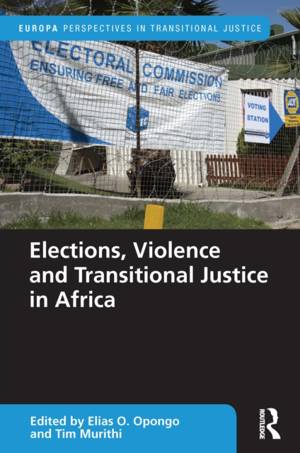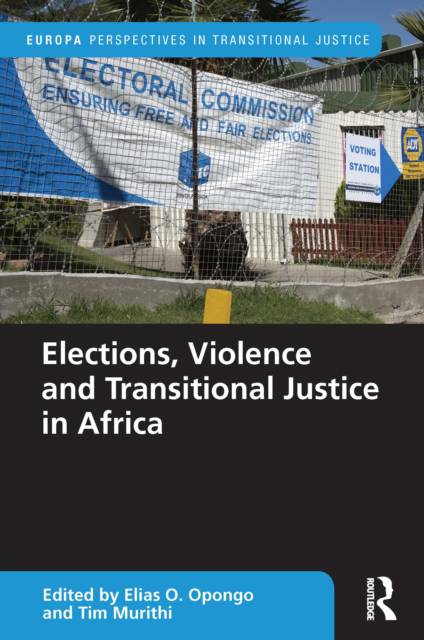
- Afhalen na 1 uur in een winkel met voorraad
- Gratis thuislevering in België vanaf € 30
- Ruim aanbod met 7 miljoen producten
- Afhalen na 1 uur in een winkel met voorraad
- Gratis thuislevering in België vanaf € 30
- Ruim aanbod met 7 miljoen producten
Elections, Violence and Transitional Justice in Africa
Omschrijving
Elections in Africa are competitive in nature and can be manipulated by incumbents to extend and entrench their rule through changes to constitutions, intimidation of opponents, excess use of police force and, in some cases, assassinations of dissident voices. Ethnic cleavages are also exploited by contestants to incite and mobilize unsuspecting masses to pursue their electoral ambitions which can lead to political instability. In many African countries, violence before, during and after elections has become a regrettable norm rather than the exception. The function of transitional justice is to address the legacy of human rights atrocities, political violence and societal harm resulting from prior misrule or violent conflicts, with a view to establishing fair, democratic and inclusive societies.
This book interrogates the potential intersection between transitional justice and electoral processes. Specifically, it examines the hypothesis that transitional justice interventions that strive to address historical injustices perpetrated by violence, conflict and entrenched by socio-political impunity, can initiate preventive measures against electoral violence through redress, accountability and institutional reforms. The contributors to this volume have engaged with country case studies from across Africa, while examining the intersection between transitional justice and electoral processes. Hence, this is a timely volume that highlights the uninterrogated nexus between elections, violence and transitional justice in Africa.
Specificaties
Betrokkenen
- Uitgeverij:
Inhoud
- Aantal bladzijden:
- 190
- Taal:
- Engels
- Reeks:
Eigenschappen
- Productcode (EAN):
- 9780367655280
- Verschijningsdatum:
- 30/05/2022
- Uitvoering:
- Hardcover
- Formaat:
- Genaaid
- Afmetingen:
- 156 mm x 234 mm
- Gewicht:
- 462 g

Alleen bij Standaard Boekhandel
Beoordelingen
We publiceren alleen reviews die voldoen aan de voorwaarden voor reviews. Bekijk onze voorwaarden voor reviews.










